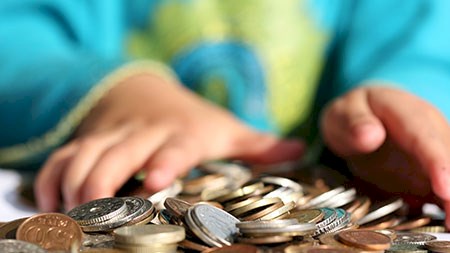January is a time of for implementing New Year’s resolutions. With that in mind, it would be wise to make a plan to kick bad financial habits so that your home ownership dreams can come true.
The holidays are over and many South Africans are waking up to the sober reality which January always seems to bring. It’s the time of year when the costs of the Christmas festivities are trickling through, annual policy increases are beginning to kick in and back to school expenses are being brought to bear. Yes, it’s an expensive time for many and if the experts are to be believed, things aren’t going to get easier any time soon.
Several elements are casting a pall over 2018’s prospects. These include, amongst others, the severe drought in the Western Cape, a lack of jobs, a weak Rand, the possibility of an increase in VAT, the fuel levy, taxes, municipal rates and utilities tariffs and a lack of confidence in the economy as a whole brought about by political uncertainty..
On balance, it would appear that there will be very little room for maneuvering in 2018. For those who over-spent during the festive season, there is even less room to do so as they are now on the back foot straight off the bat. Broadly, what this all means for the residential property market is that demand and house price growth will be low and many buyers will probably seek out more affordable, “no-frills” properties going forward.
Bleak though the outlook may appear, January is also a time of renewal and implementing New Year’s resolutions. In keeping with this tradition and with the current economic climate in mind, it would be wise to make a plan to kick bad financial habits. Additionally, if you are planning on becoming a home owner in 2018, now is the time to start putting money towards a deposit and other related property costs.
The following are just a few tips to consider on your road to becoming more financially fit in 2018:
- Save first, spend second. Structure your finances in such a way that a portion of your salary goes towards savings every month. The easiest way to go about this is to set up a debit order which deducts an allotted amount at the beginning of the month. That way, the temptation to spend money which should have gone towards savings is eliminated.
- Make do. South Africans are notorious for purchasing expensive brand name items, clothes and cars they can’t afford in a bid to keep up appearances. Step back, re-assess your position and make do with what you have. There’s no point spending money you don’t have simply to impress others.
- Re-assess your costs: If possible, look at different medical aid options and shop around for car and property insurance. Attempt to use less water and electricity, eat at home more, watch your communications costs and keep an eye out for bargains when grocery shopping. It all adds up.
- Seek help.If you do find yourself in financial difficulty, don’t ignore the issue. Talk to your bank and make use of debt review services.
- Sell stuff you don't need. Most banks require a fairly sizeable deposit in order to grant a home loan. One way to kick start or boost your deposit fund is to look around your house and consider selling unused items such as your old exercise bike, books or kitchen appliances via classified websites such as Bidorbuy. You could also unlock some cash at outlets such as Cash Converters which purchase just about anything.
- Make a plan to pay off your credit cards, especially the ones which carry the highest interest rate.
- Cut out the luxuries. Although difficult to do, it really can pay to trim the fat. Start by eliminating or decreasing one luxury at a time such as alcohol and then gradually move on to other ‘luxuries’ such as takeaway coffees or expensive prepared meals from Woolworths and the like.
It’s going to be a tough year but by being objective and sticking to your resolution to become more financially fit, it is possible to ride out the storm and make 2018 the year you get ahead.




